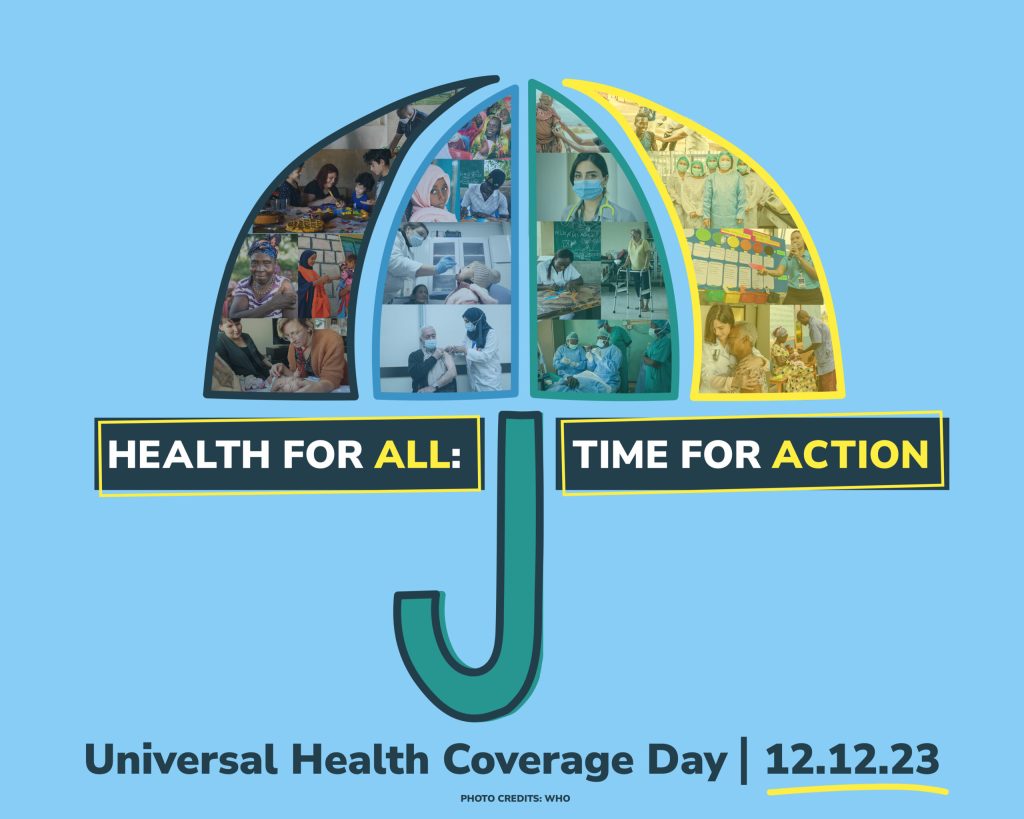This blog was written by Spencer Brown, who volunteered at Results while visiting the UK as part of his degree programme at Lawrence University, Wisconsin. Spencer’s personal reflections on Universal Health Coverage in the USA – one of the richest countries in the world – are relevant wherever people are unable to access the health services they need, underlining the importance of achieving Sustainable Development Goal 3 (health and wellbeing for all) by 2030.
At the end of my first year of high school, my parents came to see me at the awards ceremony. While they were sitting in the audience, my dad started to feel a horrible pain in his gut. As the days progressed, it kept getting worse and worse. But he didn’t go to the doctor or the hospital, because in the United States, doctor visits are expensive, and we didn’t have the money for it. After a few days of persistent pain he finally went to the doctors, explained the situation and was told he was fine. They pocketed his money, and went home. The day after, he started feeling so bad, he needed to go to the hospital, and when he did, they found out that he had a hernia. He needed immediate surgery, and had a 60% chance of surviving. He lived (thankfully), and the day came to pay the bill, and it came up to an insurmountable amount (in the mid five-figures). At home, we had to call our insurance because they’ll help us out, we thought, especially because my dad had been paying for insurance for the past 40-50 years of his life.
“We’re sorry, there’s nothing we can do.”
My dad, still in his hospital bed and gown, had to fight and fight the insurance company to cover at least part of it. Days later, he finally got part of the procedure covered. Without a properly regulated health care system, people like my dad suffer unnecessarily for things completely out of their control. It’s punishing people for getting hurt.
Even with the Affordable Care Act, we don’t have Universal Health Coverage in the United States. Universal Health Coverage might not have fully covered my dad’s surgery, but it would have spared him from fighting the insurance company and allowed him to focus on resting. Universal Health Coverage would mean the federal Government footing a significant part of the bill using taxpayer dollars, but the benefits greatly outweigh the cons, and taxes are not significantly raised to support it.
While an expensive system, Universal Health Coverage pays for itself. The World Bank estimates that US $5.7 trillion could be gained in the next seven years if we invested in, for example, good nutrition for the first thousand days of a child’s life, if you want to think only from a monetary standpoint. And note that these economic benefits would come from investing in nutrition alone, not even taking into account lifesaving procedures for significantly lesser prices. Beyond the economic benefit, obesity rates would decrease substantially and the United States would be a healthier country, and poorer communities wouldn’t be hit as hard as they currently are when they have to undergo a lifesaving procedure.

The UHC Day 2023 theme is Health for All, Time for Action. Image: UHC2030
While in London, I had a GP visit regarding an ailment. The doctors were so nice; they did what they needed to quickly; they were very honest with me; they gave me a prescription and a few things they recommended to treat myself, and they sent me on my way. I bought some ointment, which was capped at £9.95. If I had done this in the United States, it would have cost me more than I have in my bank account right now. It truly is a fantastic service. On my way back, I thought to myself, “why can’t we have this?” Backlash in the United States against Universal Health Coverage all boils down to negative connotations of ideas seen as “socialism,” and the idea that paying for someone else’s healthcare through taxes is the antithesis of individualism. But standing idly by and not doing anything, by sticking to the status quo, quite bluntly, we are killing people. Is it really worth sacrificing people for an ideology?
On a personal level, if we had Universal Health Coverage in the United States, my family wouldn’t still be in debt for my father’s surgery six years later. If we had Universal Health Coverage, people would live longer, happier lives. And more importantly to some, if we had Universal Health Coverage, the economy would be more prosperous and we would have a more productive society. But, human rights are certainly more important than ideology, no matter how much it costs.
A big thank you to Spencer for sharing his thoughts and for his support for Results during his time in the UK.
